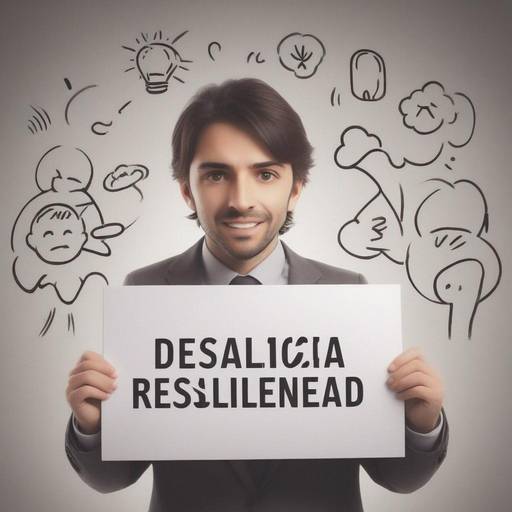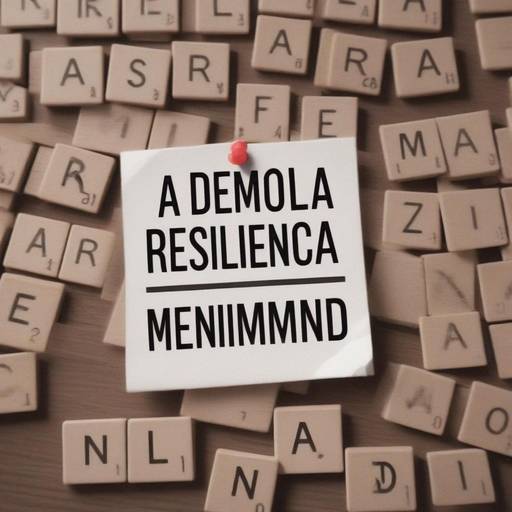
The concept of resilience, the ability of a person to overcome difficulties and to adapt positively to adverse situations, has become a subject of great relevance in today's society. One of the most effective ways to cultivate resilience is through continuous learning, which provides tools to face challenges, acquire new skills and maintain a positive mentality in the midst of adversity. In this article, we will explore in depth how continuous learning contributes to the development of resilience, as well as its relationship with personal development.
Benefits of Continuous Learning
Continuous learning, or continuing education, is a process that involves acquiring knowledge, skills and attitudes throughout life, regardless of the age or stage at which we are. Some of its benefits include the development of critical capacity, adaptability to changes, the development of creativity and the opening of new opportunities. Continuous learning is fundamental to personal and professional growth, as it allows to stay up to date in a constantly evolving world.
When we commit ourselves to continuous learning, we are strengthening our resilience by acquiring new tools and knowledge that enable us to face the challenges with greater confidence. The constant acquisition of skills gives us a sense of empowerment and helps us to maintain a positive attitude towards difficulties, which is essential to develop resilience.
Development of Resilience Through Continuous Learning
Continuous learning forges a growing mentality that is essential to cultivating resilience. By acquiring new knowledge and facing intellectual challenges, we are strengthening our ability to overcome obstacles and adapt to adverse situations. Continuous learning provides us with the tools necessary to face unexpected changes, develop creative solutions and maintain an optimistic perspective.
In addition, by learning continuously, we develop problem solving skills, stress management and adaptability, fundamental elements of resilience. These skills allow us to face the difficulties with a proactive mentality, rather than succumbing to adversity. In this way, continuous learning becomes a powerful tool to promote resilience and emotional well-being.
Importance of Personal Development in the Resilience Process
Personal development is a key aspect in the process of cultivating resilience through continuous learning. This process involves the integral growth of the person, both emotionally, intellectually and spiritually. Personal development allows us to strengthen our self-esteem, foster emotional resilience and improve our ability to face challenges.
Continuing learning is an effective way to boost personal development, as it challenges us to get out of our comfort zone, overcome intellectual obstacles and expand our vision of the world. By committing ourselves to our personal growth through continuous learning, we are strengthening our resilience by facing inevitable setbacks, while consolidating a solid foundation for our emotional well-being.
Role of Resilience in Professional Development
Resilience is a determining factor in professional development, as it trains us to overcome labor challenges, manage stress and maintain a positive attitude in the working environment. The ability to adapt to changes, learn from adverse experiences and maintain motivation in difficult situations are fundamental skills that are enhanced through continuous learning.
Resilience not only helps us to face labour challenges with strength, but also influences decision-making, time management and ability to maintain the balance between personal and professional life. Therefore, the development of resilience through continuous learning not only impacts our emotional well-being, but also has a positive impact on our professional development and our ability to achieve success in the workplace.
Strategies for Building Resilience Through Continuous Learning
1. Find Learning Opportunities
Keeping an open mindset and willing to learn at all times is essential to foster resilience through continuous learning. Finding opportunities to acquire new knowledge, whether through online courses, workshops, readings or interactions with people who possess skills that we want to develop, gives us the possibility to strengthen our resilience and confront the challenges with greater confidence.
2. Develop Skills of Self-Learning
Cultivating self-learning capacity allows us to acquire new knowledge in a self-taught way, which is fundamental to building resilience. Stimulating curiosity, research capacity and self-discipline helps us to face the challenges with a proactive attitude, rather than succumbing to adversity.
3. Establish Realist Learning Goals
By setting attainable learning goals, we provide an opportunity to experience success and strengthen our resilience. Establishing short, medium and long-term goals allows us to maintain a clear focus on our personal and professional development, while teaching us to adapt to change and to persevere with difficulties.
4. Cultivate the Mentality of Growth
Adopting a growing mentality allows us to face the challenges with a positive attitude, understanding that difficulties are opportunities to learn and grow. To believe in our ability to develop new skills, overcome obstacles and adapt to adverse situations strengthens our resilience and drives us to achieve our full potential.
5. Practice Self-Reflection and Self-Reflection
Self-reflection and self-care are fundamental elements for strengthening our resilience through continuous learning. Taking time to evaluate our strengths, areas of improvement and needs helps us identify learning opportunities and develop effective strategies to overcome challenges. Also, caring for our physical, emotional and mental health gives us the necessary strength to face the adversities with resilience.
Conclusion
Continuous learning is a powerful tool to strengthen resilience and promote our personal and professional development. By committing ourselves to constant growth, we acquire the skills necessary to confront the challenges with confidence, creativity and determination. At the same time, we cultivate a culture of growth that allows us to adapt positively to adverse situations and maintain a positive attitude in the midst of adversity. Continuous learning not only gives us knowledge and skills, but also trains us to cultivate the resilience needed to thrive in a constantly changing world.
Frequently asked questions
Why is continuous learning important to develop resilience?
Continuous learning provides the tools and knowledge necessary to face challenges, adapt to adverse situations and maintain a positive attitude towards adversity, thereby strengthening our emotional resilience and our ability to overcome obstacles with confidence.
To what extent does personal development influence resilience?
Personal development is essential to cultivate resilience, as it strengthens our self-esteem, fosters emotional resilience and improves our ability to face challenges. Through continuous learning, we drive our personal growth, which helps to strengthen our long-term resilience.
How can I foster resilience through continuous learning in the workplace?
In the workplace, it is essential to seek opportunities to acquire new skills, develop self-learning skills and set realistic learning goals. Cultivating a culture of growth and practising self-reflection and self-care are also effective strategies to strengthen resilience through continuous learning in the working environment.
What is the role of resilience in professional development?
Resilience is fundamental in professional development, as it trains us to overcome labor challenges, manage stress and maintain a positive attitude in the working environment. Through continuous learning, we strengthen our resilience, which positively impacts our professional development and our ability to achieve success in the workplace.
How can I cultivate the growth mentality?
Cultivating a growing mentality involves believing in our ability to develop new skills, overcome obstacles and adapt to adverse situations. To promote this mentality, it is important to be willing to learn, seek growth opportunities, set challenging goals and practice self-reflection to identify development opportunities.
What impact does resilience have on decision-making and time management?
Resilience influences decision-making and time management, as it trains us to maintain a positive attitude towards difficulties, make effective decisions in challenging situations and manage time efficiently. Through continuous learning, we strengthen these skills, which positively impact our ability to face resilience challenges.
What is the relationship between self-care and resilience?
Self-care is fundamental to strengthening resilience, as caring for our physical, emotional and mental health gives us the strength to face adversities with resilience. Through continuous learning, we can develop effective self-care strategies that enable us to maintain a positive attitude and overcome challenges with confidence.
In short, continuous learning is a key element in the development of resilience, as it provides us with the tools necessary to face challenges, adapt to adverse situations and maintain a positive attitude in the midst of adversity. Through commitment to constant growth, we strengthen our emotional resilience and our ability to overcome obstacles, which has a positive impact on our personal, professional and emotional lives.






















































